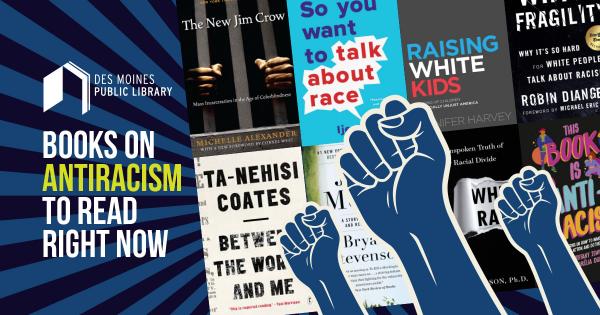
9/3/2020 UPDATE: We have ordered Book Club sets of several antiracism books to help facilitate discussion among the community. We are also adding new books as they come in. Book Club sets and new books are included below. Some new books have not been released yet, but you can place holds ahead of time to borrow them.
Book Club Sets
- I'm Still Here, by Austin Channing Brown
- White Fragility, by Robin Diangelo
- Raising White Kids, by Jennifer Harvey
- How to Be an Antiracist, by Ibram X. Kendi
- So You Want to Talk About Race, by Ijeoma Ojeoma
- Caste, by Isabel Wilkerson
New Antiracism Books
- A Peculiar Indifference: The Neglected Toll of Violence on Black America, by Elliott Currie (September 15)
- Just Us: An American Conversation, by Claudia Rankine (September 8)
- Stakes is High: Life After the American Dream, by Mychal Denzel Smith (September 15)
- How to Argue with a Racist: What Our Genes Do (and Don't) Say About Human Difference, by Adam Rutherford (on order)
- Once I Was You: A Memoir of Love and Hate in a Torn America, by Maria Hinojosa (September 15)
- Inclusive Conversations: Fostering Equity, Empathy, and Belonging Across Differences, by Mary-Frances Winters (available now)
- Begin Again: James Baldwin's American and Its Urgent Lessons for Our Own, by Eddie S. Glaude, Jr. (available now)
- A Knock at Midnight: A Story of Hope, Justice, and Freedom, by Brittany Barnett (September 8)
-----
Anger. Sadness. Helplessness. That is how people are feeling right now as protests grip the nation – including in Des Moines – in response to the death of George Floyd, the African-American man who was killed when a white Minneapolis police officer kneeled on his neck for nearly nine minutes as he cried for help.
Books can be a source of comfort, education, context, and inspiration during these trying, difficult times. Many people are looking for ways they can get involved, educate themselves, and begin to understand the history and context of how we got to this moment in America.
Below, find a list of books we recommend on these topics. If you have suggestions for books and you don’t see them in our catalog, please let us know by filling out this form: https://suggestatitle.dmpl.org/
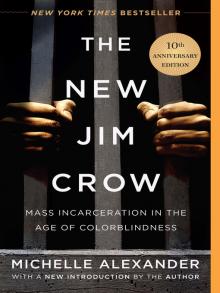
'The New Jim Crow: Mass Incarceration in the Age of Colorblindness,' by Michelle Alexander
With candor, legal scholar Michelle Alexander argues that "we have not ended racial caste in America; we have merely redesigned it." By targeting black men through the War on Drugs and decimating communities of color, the U.S. criminal justice system functions as a contemporary system of racial control, relegating millions to a permanent second-class status. In the words of Benjamin Todd Jealous, president and CEO of the NAACP, this book is a "call to action."
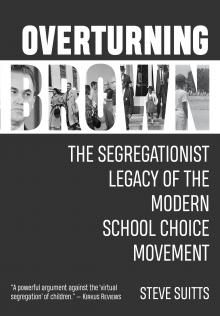
'Overturning Brown: The Segregationist Legacy of the Modern School Choice Movement,' by Steve Suitts
In Overturning Brown, Steve Suitts examines the parallels between de facto segregationist practices and the modern school choice movement. He exposes the dangers lying behind the smoke and mirrors of what he calls the so-called civil rights policies of Betsy DeVos and the education privatization lobbies. Suitts deftly reveals the risk that America and underprivileged youth face as school voucher programs funnel public funds into predominantly white and often wealthy private schools and charter schools.
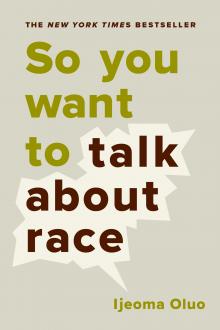
'So You Want to Talk about Race?' by Ijeoma Oluo
Widespread reporting on white supremacy, from police brutality to the mass incarceration of Black Americans, has put a media spotlight on racism in our society. In So You Want to Talk About Race, Ijeoma Oluo guides through subjects ranging from intersectionality and affirmative action to "model minorities" in an attempt to make the seemingly impossible possible: honest conversations about race and racism, and how they infect almost every aspect of American life.
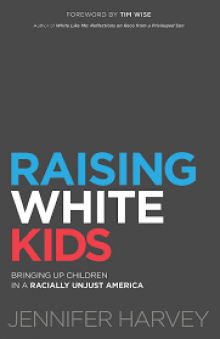
'Raising White Kids: Bringing Up Children in a Racially Unjust America,' by Jennifer Harvey
Raising White Kids is for families, churches, educators, and communities who want to equip their children to be active and able participants in a racially diverse society full of racial tensions. How do we talk about race honestly? What can we do to promote justice and equity in our homes, communities, and schools? Raising White Kids provides meaningful dialogue and resources for families to understand the impact of race.
Author Jennifer Harvey is a professor of religion at Drake University here in Des Moines. Watch her recent virtual author conversation with the Des Moines Public Library HERE.
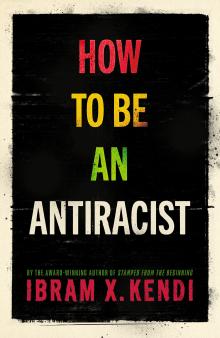
'How to Be an Anti-Racist,' by Ibram X Kendi
At its core, racism is a powerful system that creates false hierarchies of human value; from the way we regard people of different skin colors to the way we treat people of different sexes, gender identities, and body types. In How to Be an Antiracist, Kendi takes readers through a widening circle of antiracist ideas to help readers see all forms of racism and work to oppose them in our systems and in ourselves.
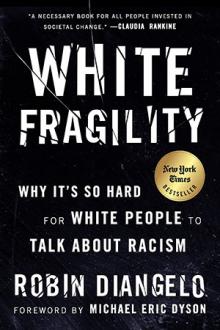
'White Fragility: Why It's So Hard for White People to Talk about Racism,' by Robin DiAngelo
Educator Robin DiAngelo illuminates the phenomenon of white fragility and "allows us to understand racism as a practice not restricted to 'bad people.’” Referring to defensive moves white people make when challenged racially, white fragility is characterized by emotions such as anger, fear, and guilt, and by behaviors including argumentation and silence. In this in-depth exploration, DiAngelo examines how white fragility develops, how it protects racial inequality, and what we can do to engage constructively.
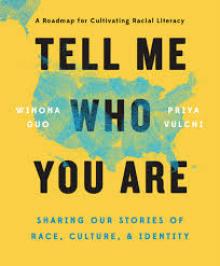
'Tell Me Who You Are: Sharing our Stories of Race, Culture, and Identity,' by Winona Guo and Priya Vulchi
In Tell Me Who You Are, Guo and Vulchi reveal the lines that separate us based on race or other perceived differences. Spurred by the realization that they had nearly completed high school without hearing any substantive discussion about racism in school, the two young women deferred college admission for a year to collect first-person accounts of how racism plays out in this country every day, often in unexpected ways.
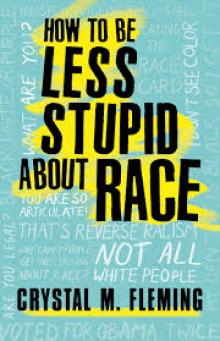
'How to be Less Stupid About Race,' by Crystal Marie Fleming
Combining social critique, personal anecdotes, and analysis of the latest interdisciplinary scholarship on systemic racism, sociologist Crystal M. Fleming provides a fresh take on everything that's wrong with our "national conversation about race." Drawing upon critical race theory and her own experiences as a queer black millennial college professor and researcher, Fleming unveils how systemic racism exposes us all to racial ignorance and provides a road map for transforming our knowledge into concrete social change.
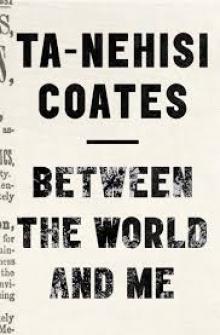
'Between the World and Me,' by Ta-Nehisi Coates
A profound work that pivots from the biggest questions about American history and ideals to the most intimate concerns of a black father for his son, Between the World and Me clearly illuminates the past, bracingly confronts our present, and offers a transcendent vision for a way forward.
This book was a #1 New York Times bestseller and National Book Award winner.
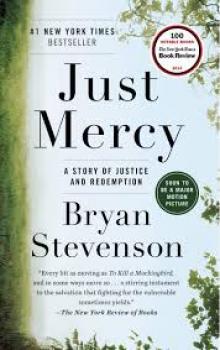
'Just Mercy,' by Bryan Stevenson
When young lawyer Bryan Stevenson founded the Equal Justice Initiative, one of his first cases was that of Walter McMillian, a young man who was sentenced to die for a notorious murder he insisted he didn't commit. Just Mercy is at once an account of an idealistic young lawyer's coming of age, a moving window into the lives of those he has defended, and an inspiring argument for compassion in the pursuit of true justice.
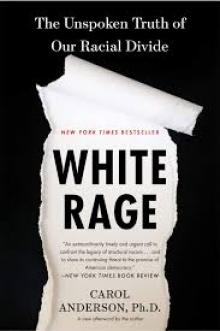
'White Rage: The Unspoken Truth of Our Racial Divide,' by Carol Anderson
Carefully linking historical flashpoints when social progress for African Americans was countered by deliberate and cleverly crafted opposition, Anderson pulls back the veil that has long covered actions made in the name of protecting democracy, fiscal responsibility, or protection against fraud, rendering visible the long lineage of white rage. Compelling and dramatic in the unimpeachable history it relates, White Rage adds an important new dimension to the national conversation about race in America.
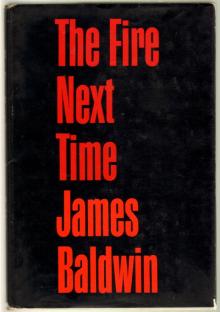
'The Fire Next Time,' by James Baldwin
A national bestseller when it first appeared in 1963, The Fire Next Time gave passionate voice to the emerging civil rights movement. At once a powerful evocation of James Baldwin's early life in Harlem and an examination of the consequences of racial injustice, the book is an intensely personal and provocative document. It consists of two "letters" that exhort Americans, both black and white, to attack the terrible legacy of racism.
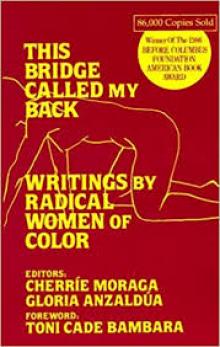
'This Bridge Called My Back,' by Cherrie Moraga
Originally released in 1981, This Bridge Called My Back is a testimony to women of color feminism as it emerged in the last quarter of the twentieth century. Through personal essays, criticism, interviews, testimonials, poetry, and visual art, the collection explores, as co-editor Cherríe Moraga writes, “the complex confluence of identities—race, class, gender, and sexuality—systemic to women of color oppression and liberation.”
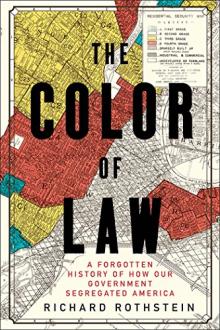
'The Color of Law: A Forgotten History of How Our Government Segregated America,' by Richard Rothstein
Contradicting the myth of de facto segregation arising from private prejudice or the unintended consequences of economic forces, Rothstein describes how the American government systematically imposed residential segregation: with undisguised racial zoning; public housing that purposefully segregated previously mixed communities; subsidies for builders to create whites-only suburbs; tax exemptions for institutions that enforced segregation; and support for violent resistance to African Americans in white neighborhoods.
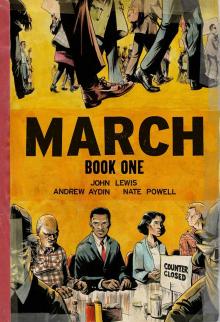
'March,' by John Lewis
March is a vivid first-hand account of Congressman John Lewis' lifelong struggle for civil and human rights, meditating in the modern age on the distance traveled since the days of Jim Crow and segregation. Rooted in Lewis' personal story, it also reflects on the highs and lows of the broader civil rights movement. It is a three-book graphic novel series.
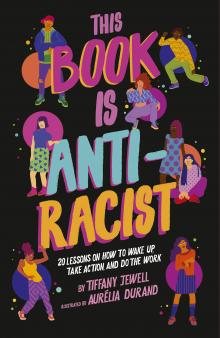
'This Book is Anti-Racist,' by Tiffany Jewell (Young adult book)
Gain a deeper understanding of your anti-racist self as you progress through 20 chapters that spark introspection, reveal the origins of racism that we are still experiencing, and give you the courage and power to undo it. Each chapter builds on the previous one as you learn more about yourself and racial oppression. 20 activities get you thinking and help you grow with the knowledge. All you need is a pen and paper.
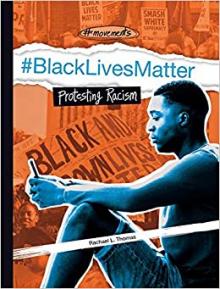
'#BlackLivesMatter: Protesting Racism,' by Rachael L. Thomas (Young adult book)
In this title, readers learn about the #BlackLivesMatter movement, from the history of slavery and racism, to the slayings of Travon Martin and Michael Brown, to further efforts to end racism such as Campaign Zero, and #takeaknee, and Black Futures Lab.
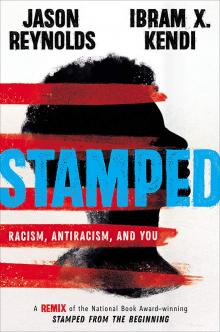
'Stamped: Racism, Antiracism, and You,' by Ibram X. Kendi and Jason Reynolds (Young adult book)
The construct of race has always been used to gain and keep power, to create dynamics that separate and silence. This remarkable reimagining of Dr. Ibram X. Kendi's National Book Award-winning Stamped from the Beginning reveals the history of racist ideas in America and inspires hope for an antiracist future. It takes you on a journey from then to now, shows you why we feel how we feel, and why the poison of racism lingers.
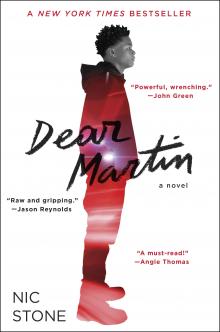
'Dear Martin,' by Nic Stone (Young adult novel)
Justyce McAllister is a good kid, an honor student, and always there to help a friend. Then comes the day Justyce goes driving with his best friend, Manny, windows rolled down, music turned up - way up, sparking the fury of a white off-duty cop beside them. Words fly. Shots are fired. Justyce and Manny are caught in the crosshairs. In the media fallout, it's Justyce who is under attack.
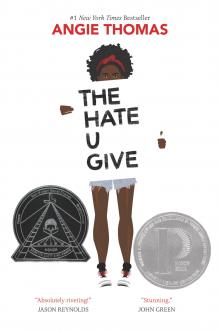
'The Hate U Give,' by Angie Thomas (Young adult novel)
Sixteen-year-old Starr Carter moves between two worlds: the poor neighborhood where she lives and the fancy suburban prep school she attends. The uneasy balance between these worlds is shattered when Starr witnesses the fatal shooting of her childhood best friend Khalil at the hands of a police officer. Khalil was unarmed.
Soon afterward, his death is a national headline. Some are calling him a thug, maybe even a drug dealer and a gangbanger. Protesters are taking to the streets in Khalil's name. Some cops and the local drug lord try to intimidate Starr and her family. What everyone wants to know is: what really went down that night? And the only person alive who can answer that is Starr.
But what Starr does--or does not--say could upend her community. It could also endanger her life.
The Hate U Give received the Coretta Scott King Award for the best novel by an African-American author for children.
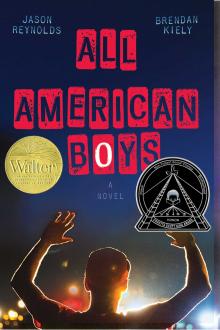
'All American Boys,' by Jason Reynolds and Brendan Kiely (Young adult novel)
A bag of chips. That's all sixteen-year-old Rashad is looking for at the corner bodega. What he finds instead is a fist-happy cop, Paul Galluzzo, who mistakes Rashad for a shoplifter, mistakes Rashad's pleadings that he's stolen nothing for belligerence, mistakes Rashad's resistance to leave the bodega as resisting arrest, mistakes Rashad's every flinch at every punch the cop throws as further resistance and refusal to STAY STILL as ordered. But how can you stay still when someone is pounding your face into the concrete pavement?
In this Coretta Scott King Honor Award-winning novel, two teens - one black, one white - grapple with the repercussions of a single violent act that leaves their school, their community, and, ultimately, the country bitterly divided by racial tension.
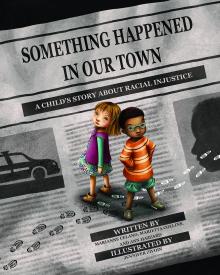
'Something Happened in Our Town: A Child’s Story about Racial Injustice,' by Marianne Celano, Marietta Collins, and Ann Hazzard (Children's book)
Something Happened in Our Town follows two families — one White, one Black — as they discuss a police shooting of a Black man in their community. The story aims to answer children's questions about such traumatic events, and to help children identify and counter racial injustice in their own lives.
Includes an extensive Note to Parents and Caregivers with guidelines for discussing race and racism with children, child-friendly definitions, and sample dialogues.
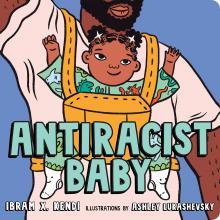
'Antiracist Baby,' by Ibram X. Kendi (Children's book)
Take your first steps with Antiracist Baby! Or rather, follow Antiracist Baby's nine easy steps for building a more equitable world.
With bold art and thoughtful text, Antiracist Baby introduces the youngest readers and the grown-ups in their lives to the concept and power of antiracism. Providing the language necessary to begin critical conversations at the earliest age, Antiracist Baby is the perfect gift for readers of all ages dedicated to forming a just society.
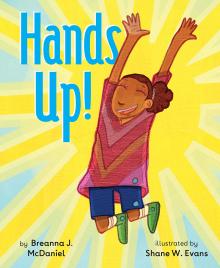
'Hands Up!' by Breanna J. McDaniel (Children's book)
A young black girl lifts her baby hands up to greet the sun, reaches her hands up for a book on a high shelf, and raises her hands up in praise at a church service. She stretches her hands up high like a plane's wings and whizzes down a hill so fast on her bike with her hands way up. As she grows, she lives through everyday moments of joy, love, and sadness. And when she gets a little older, she joins together with her family and her community in a protest march, where they lift their hands up together in resistance and strength.
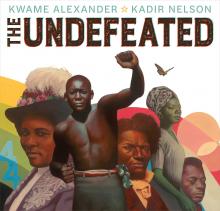
'The Undefeated,' by Kwame Alexander (Children's book)
Originally performed for ESPN's The Undefeated, this poem is a love letter to black life in the United States. It highlights the unspeakable trauma of slavery, the faith and fire of the civil rights movement, and the grit, passion, and perseverance of some of the world's greatest heroes.
Last Modified March 02, 2026
Type:
Home Page